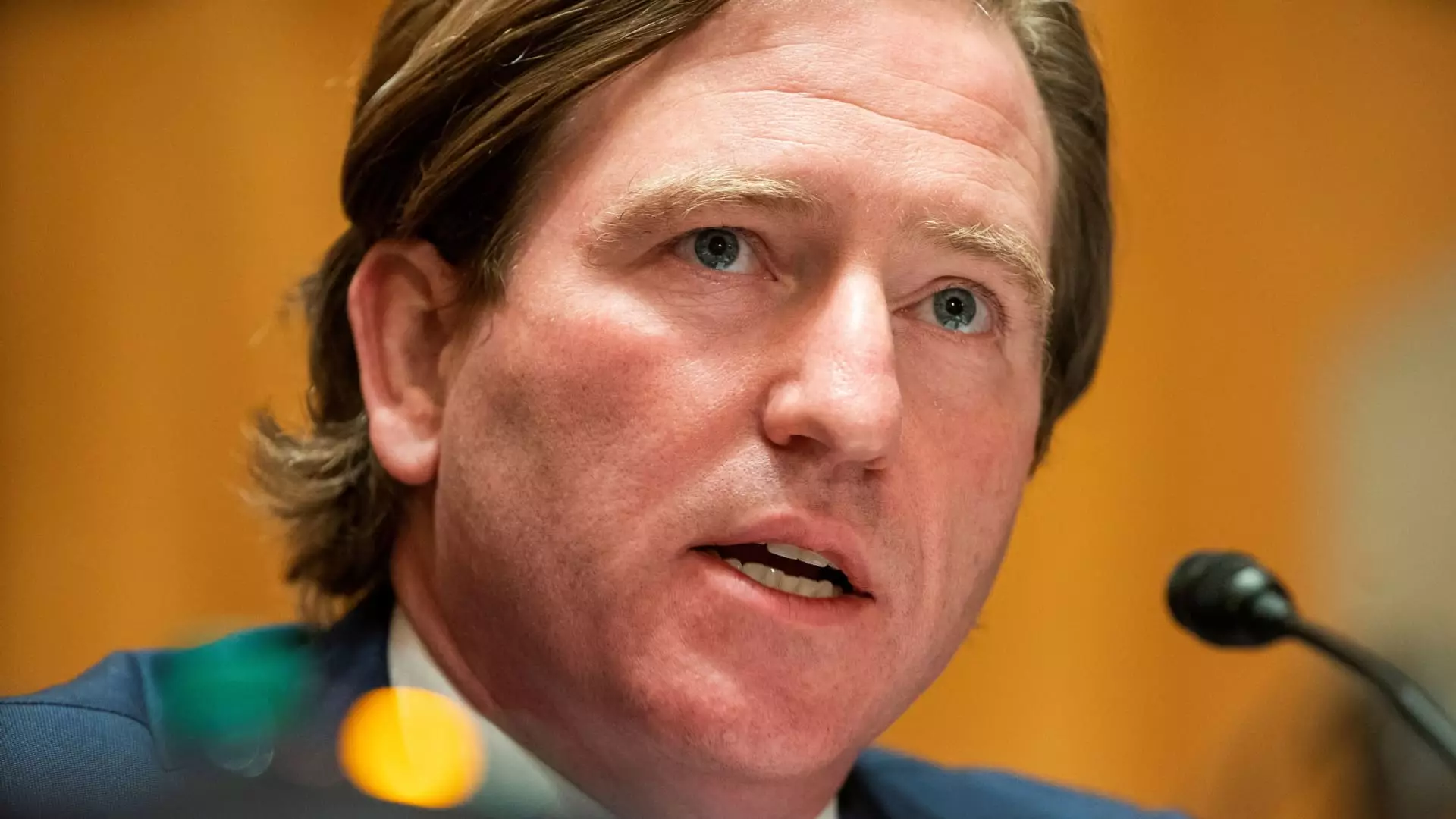In a move that underscores the potentially toxic interplay between political machinations and private enterprise, President Donald Trump’s recent executive order targeting Chris Krebs, former chief of the Cybersecurity and Infrastructure Security Agency (CISA), sends shockwaves through the cybersecurity industry. The order not only requested the suspension of security clearances for Krebs and his associated organizations, particularly SentinelOne—a multi-billion dollar cybersecurity firm—but also exemplifies a worrying precedent where political grievances manifest into corporate pressures. It is a demonstration of how a leader’s vendetta can cascade into private sectors, prompting self-censorship and fear among pivotal actors in our economy.
Trump’s willingness to label Krebs as a “bad-faith actor” reveals the lengths to which he will go to consolidate control and silence dissent. This is not merely a battle for cybersecurity; it is an alarming indicator of how American democracy is tethered precariously to the edicts of its leaders. Krebs’ removal from SentinelOne, which he asserts was a personal choice, underscores the harsh reality that in today’s America, expressing a conflicting opinion can come at a steep price.
The Broader Implications for Democracy
Krebs made headlines as the director of CISA, where he courageously declared that the 2020 election was secure—a stance that directly contradicted Trump’s narrative of a “stolen” election. His recent resignation not only illustrates the chilling effect of political reprisals but also raises critical questions about the integrity of discourse in democratic institutions. Is it possible for experts like Krebs to engage openly in their domains without fear of reprisals from those in power? The answer seems increasingly bleak.
When Krebs reflects on this “fight for democracy” in his resignation announcement, he touches upon a poignant reality: we are experiencing a crucial moment for the principles of free speech and the rule of law in a world that, under political duress, appears ready to sacrifice these tenets. These moments should be concerning for anyone, regardless of political affiliation. When strong-arming tactics are used against individuals in the private sector merely for they expressing facts inconsistent with partisan narratives, we inch closer to an authoritarian landscape.
The Question of Corporate Responsibility
Further compounding these concerns is the question of corporate responsibility. How should companies like SentinelOne respond when their employees are targets of political retribution? Krebs’ resignation might have been framed as his choice, but it serves as a stark reminder of how corporate environments can, intentionally or not, cultivate a culture of fear that discourages challenge or dissent.
Let’s not ignore the precarious position that SentinelOne finds itself in; its business relies significantly on government contracts. The implication of this dependency fosters an environment where the threat of losing government relationships can dictate company policies and personnel decisions. The memo from SentinelOne CEO Tomer Weingarten purports to affirm Krebs’ role in strengthening public-private partnerships, yet it inevitably raises the question: Are corporations like SentinelOne equipped with the moral fortitude to stand, or will they capitulate when faced with government pressures?
A Technological Battlefield Undergoing Political Warfare
The repercussions of political dynamics infiltrating the tech sector disrupt not just the corporate entities, but the technological landscape itself. Binary software solutions are not simply products; they are the backbone of national cybersecurity strategy. When firms like SentinelOne become collateral in a political game, it can threaten national security and the safety of information systems. This duality between being a private organization and an essential cog in the machinery of national defense must be reckoned with.
As Trump’s executive order underscores a growing trend of intertwining politics with corporate governance, the consequences extend beyond specific individuals into the realm of technological innovation itself. A stifling atmosphere creates conditions where talent may not want to engage in pivotal sectors like cybersecurity if they risk political fallout, ultimately undermining our technological fortitude.
Restatement of the Status Quo
In this precarious time, Krebs’ situation serves as a litmus test for understanding the balance between political influence and civil rights in America. The pressure to conform or remain silent amid political warfare is palpable. The increasing visibility of political actors applying pressure on business leaders is not merely an issue for those directly affected; it reverberates through the core of American democracy, creating fractures that may take decades to mend.
It’s time for a reevaluation of the principles guiding the interaction between our government and private sectors, for the consequences of capitulation today can lead to an unforeseen erosion of civil liberties tomorrow. As we stand on this crossroads, we must be vigilant, recognizing the broader implications of these power plays as they threaten to redefine the very fabric of American society.

